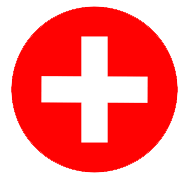Crisis Care
For Life Threatening Emergencies:
Call 911
Or go to your nearest Emergency Room
_________________________________
For other crisis needs 24/7:
- Call UCI Counseling Center at (949) 824-6457
- Crisis Text Line
♦ Text “Home” to 741741
- Call or text 9-8-8 Suicide and Crisis Lifeline at 9-8-8
- Call UCI Campus Police at
(949) 824-5223
Mind Your Zot!
Taking Care of your Emotional Health in an Emergency
It is natural to feel stress, anxiety, grief, and worry during and after an emergency like the COVID-19 pandemic and continued concerns around anti-Black and anti-Asian violence and discrimination. Everyone reacts differently, and your own feelings will change over time. Notice and accept how you feel. Taking care of your emotional health during an emergency will help you think clearly and react to the urgent needs to protect yourself and your loved ones. Self-care during an emergency will help your long-term healing.
Take the following steps to cope with an emergency:
- Take care of your body– Try to eat healthy well-balanced meals, exercise regularly, and get plenty of sleep. Avoid alcohol, tobacco, and other drugs.
- Connect with others– Share your concerns and how you are feeling with a friend or family member. Maintain healthy relationships, and build a strong support system.
- Take breaks– Make time to unwind and remind yourself that strong feelings will fade. Try taking in deep breaths. Try to do activities you usually enjoy.
- Stay informed– When you feel that you are missing information, you may become more stressed or nervous. Watch, listen to, or read the news for updates from officials. Be aware that there may be rumors during a crisis, especially on social media. Always check your sources and turn to reliable sources of information like your local government authorities.
- Avoid too much exposure to news– Take breaks from watching, reading, or listening to news stories. It can be upsetting to hear about the crisis and see images repeatedly. Try to do enjoyable activities and return to normal life as much as possible and check for updates between breaks.
- Seek help when needed– If distress impacts activities of your daily life for several days or weeks, talk to a clergy member, counselor, or doctor.
Look out for these common signs of distress:
- Feelings of numbness, disbelief, anxiety or fear.
- Changes in appetite, energy, and activity levels.
- Difficulty concentrating.
- Difficulty sleeping or nightmares and upsetting thoughts and images.
- Physical reactions, such as headaches, body pains, stomach problems, and skin rashes.
- Worsening of chronic health problems.
- Anger or short-temper.
- Increased use of alcohol, tobacco, or other drugs.
- If you experience these feelings or behaviors for several days in a row and are unable to carry out normal responsibilities because of them, please reach out to a professional for support. The Counseling Center is available to provide support, guidance, and additional resources to help you get through this!
(adapted from https://emergency.cdc.gov/coping/selfcare.asp)
For more informatoin on how to manage stress related to the COVID-19 outbreak, please click here.
Additional Resources:
- COVID Mental Health Support
- * AUCCCO (Association of University College Counseling Center Outreach)
- *APA (American Psychological Association)
- * https://www.apa.org/practice/programs/dmhi/research-information/social-distancing
- Using technology to mind your mental health during COVID-19 epidemic
- 40 things to do at home while you’re self-isolating
- A list of resources that may be helpful during the COVID-19 epidemic



